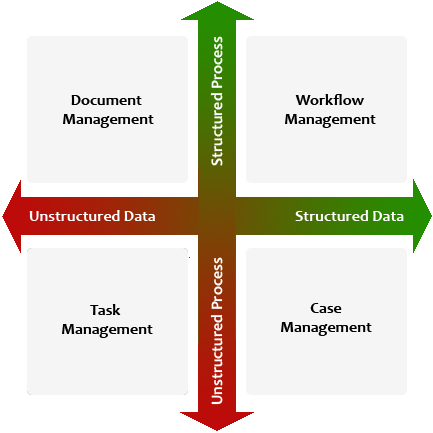When the co-founders of Facebook (Asana) & stackoverflow (Trello) are building task management software, you know that this market is red-hot. Task management software helps you to organize your tasks better – much better than emails. I am quite happy that this latest offshoot of workflow market is creating a new fledgling market on its own. However, when well-respected VCs like Mark Suster start saying that they are the perfect tool for teams and product managers, I think task management softwares just stepped on our foot. So, I’m here to make a case against using them for teams.
And here it goes: Workflow is all about 2 things – Process & Data. When you are designing a form to capture data from your users, you are structuring data. When you are defining the approval steps that the form has to go through, you are structuring process. However, structured process and data are just the trees. The woods (i.e. the big picture) lie in the reports and analytics they provide. For example, if you are a product manager managing feature requests, you would want to capture the product name, its version and criticality to create reports based on these parameters. Similarly, structured process is useful in analyzing the time spent in each of the development stages – design, implementation and QA cycles.

Process vs Data Management Quadrant Diagram
The earlier offshoots of workflow – document management and case management are based on clear workflow needs. Document management workflows came into existence because unstructured documents are used as payloads instead of forms. Similarly, Case management is helpful when approval steps can not be determined upfront and are situational in nature. But the latest offshoot – task management is based on free-form tasks – free-form text & free-form assignment. It is built for user’s comfort. Not based on team or organization needs. Users are always comfortable with free-form text, instead of filling forms with mandatory fields. That doesn’t mean free-form text will be helpful for teams. If the feature request is not structured: – how can a product manager or his team filter feature requests based on product or criticality? – how do they find which development stage (design, implementation, QA) that feature is in? Teams will lose the big picture of reporting and analytics. It is like missing the woods for the trees!
So here is my take: Task management softwares are useful when you are managing individual & personal tasks. It is better than email and is simple to use. However, that is not an excuse for using it in wrong-use cases. If you are trying to organize tasks for your team, you are better off with an easy-to-use workflow tool like Kissflow Workflow. And you should be concerned about it as a CEO or product manager. If your workflow tool is not simple enough, then find one! Simplicity is like gravity! Workflow vendors just need a little push to make it simpler.